Please fill out the following information, and RRFC Admissions will contact you to discuss our program offerings:
Issue #245
by Liya Swift
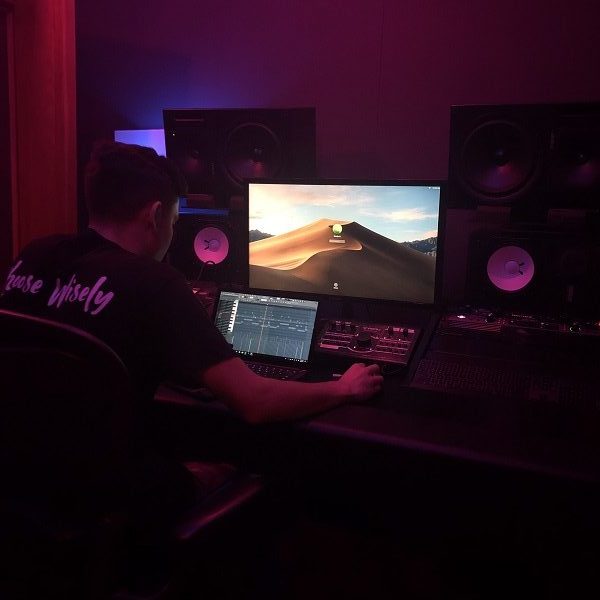 Freshly graduated from the Recording Connection for Audio Engineering & Music Production program, Elijah Ibarra (Los Angeles, CA) went on to get hired at Electric Feel Studios, the studio home of Electric Feel Management whose roster includes some of today’s hottest music producers including Camper, Louis Bell, Brody Brown, and more.
Now, one year into his position as studio engineer, we connected with Elijah to talk about his experiences in Recording Connection, find out how he’s fast-tracked his way to success, and to garner some advice on how aspiring audio engineers and producers can make the most of their in-industry externships.
What got you into music in the first place?
“My dad was actually a DJ back in his prime, and he was really good at mixing… When I was little he would slap me on headphones and I would always be listening…I was also a performer and a dancer. So music was always a part of my life, and I knew that I always wanted to be able to make it and create it, because I had a lot of ideas.”
So after you reached out to Recording Connection, we sent you to interview with mentor Brian Frederick at Hybrid Studios. Tell us about that.
“I remember when I walked in…[and] It had everything I was looking forward to…he was a really cool guy. I learned so much from him. I wouldn’t ask for another mentor. He was very cool.”
Was Brian able to help you learn anything which you first found to be challenging?
“The main thing I was really struggling with was the speed on the quick keys, on Pro Tools. He was very fast. He would fly through it and I was just over here, still struggling trying to memorize it. But he always took you step-by-step and explained everything. He used a lot of analogies, and it all made sense.”
So it sounds like Brian underscored the importance of being quick on the commands.
“Speed is the key, honestly…Mainly because artists have a lot of ideas in their heads and they just want to be able to get it out, and if you’re kind of struggling, like…you always have to tell them to hold on, they’re going to probably get a little upset and impatient. So it’s up to the engineer to be quick and fast, because you’re the driver and they’re like the passenger, and they have the directions. So you have to speed up the process.”
Did you have your own projects you were working on at home while you were going through the program? If so, would you apply what you were learning to your own music?
“I always made beats, that was my number one thing…Every time he would explain something, I would go home and put it on my beats and be like, ‘Wow, this sounds way better’…So everything I would learn there I would also take home. I would put my beats on Pro Tools and mix it on there and everything. It was very cool.”
How did you get hired at Electric Feel?
“My cousin knew someone in Electric Feel who said ‘Send in your resume’…So I sent my resume in, he gave it to the manager, and I went in for an interview. He liked me. He said, ‘Let’s go,’ and then he brought me in from there. So that’s pretty much the summary of how I got into there.
How long have you been working there?
“I’ve been there since late September…A year at this point.”
Have any projects in the works? Any other stuff you want to tell us about?
“Actually, I signed a nondisclosure about speaking on that, so I can’t really talk too much on that. But yeah, there are a lot of projects that are currently happening right now and that are also being released as well…So it’s pretty big. The spot I’m at right now, I wouldn’t want to be anywhere else.”
So, what’s your advice on how students can make the most of their time in the program?
“Really, just pay attention and try to take up as much information [as possible] and don’t be afraid to ask questions. I feel like a lot of people get told it and they’re like, ‘All right, I don’t understand.’ And it’s okay to not understand it, because I remember when I first went in, I didn’t understand anything. And it could probably feel a little bit embarrassing, but it’s like, these people are here to help you understand it, because one day [in the past] even your mentor didn’t understand it, if that makes sense. So always ask questions, don’t be afraid. Even if you ask five times…”
Learn more about Recording Connection.
Freshly graduated from the Recording Connection for Audio Engineering & Music Production program, Elijah Ibarra (Los Angeles, CA) went on to get hired at Electric Feel Studios, the studio home of Electric Feel Management whose roster includes some of today’s hottest music producers including Camper, Louis Bell, Brody Brown, and more.
Now, one year into his position as studio engineer, we connected with Elijah to talk about his experiences in Recording Connection, find out how he’s fast-tracked his way to success, and to garner some advice on how aspiring audio engineers and producers can make the most of their in-industry externships.
What got you into music in the first place?
“My dad was actually a DJ back in his prime, and he was really good at mixing… When I was little he would slap me on headphones and I would always be listening…I was also a performer and a dancer. So music was always a part of my life, and I knew that I always wanted to be able to make it and create it, because I had a lot of ideas.”
So after you reached out to Recording Connection, we sent you to interview with mentor Brian Frederick at Hybrid Studios. Tell us about that.
“I remember when I walked in…[and] It had everything I was looking forward to…he was a really cool guy. I learned so much from him. I wouldn’t ask for another mentor. He was very cool.”
Was Brian able to help you learn anything which you first found to be challenging?
“The main thing I was really struggling with was the speed on the quick keys, on Pro Tools. He was very fast. He would fly through it and I was just over here, still struggling trying to memorize it. But he always took you step-by-step and explained everything. He used a lot of analogies, and it all made sense.”
So it sounds like Brian underscored the importance of being quick on the commands.
“Speed is the key, honestly…Mainly because artists have a lot of ideas in their heads and they just want to be able to get it out, and if you’re kind of struggling, like…you always have to tell them to hold on, they’re going to probably get a little upset and impatient. So it’s up to the engineer to be quick and fast, because you’re the driver and they’re like the passenger, and they have the directions. So you have to speed up the process.”
Did you have your own projects you were working on at home while you were going through the program? If so, would you apply what you were learning to your own music?
“I always made beats, that was my number one thing…Every time he would explain something, I would go home and put it on my beats and be like, ‘Wow, this sounds way better’…So everything I would learn there I would also take home. I would put my beats on Pro Tools and mix it on there and everything. It was very cool.”
How did you get hired at Electric Feel?
“My cousin knew someone in Electric Feel who said ‘Send in your resume’…So I sent my resume in, he gave it to the manager, and I went in for an interview. He liked me. He said, ‘Let’s go,’ and then he brought me in from there. So that’s pretty much the summary of how I got into there.
How long have you been working there?
“I’ve been there since late September…A year at this point.”
Have any projects in the works? Any other stuff you want to tell us about?
“Actually, I signed a nondisclosure about speaking on that, so I can’t really talk too much on that. But yeah, there are a lot of projects that are currently happening right now and that are also being released as well…So it’s pretty big. The spot I’m at right now, I wouldn’t want to be anywhere else.”
So, what’s your advice on how students can make the most of their time in the program?
“Really, just pay attention and try to take up as much information [as possible] and don’t be afraid to ask questions. I feel like a lot of people get told it and they’re like, ‘All right, I don’t understand.’ And it’s okay to not understand it, because I remember when I first went in, I didn’t understand anything. And it could probably feel a little bit embarrassing, but it’s like, these people are here to help you understand it, because one day [in the past] even your mentor didn’t understand it, if that makes sense. So always ask questions, don’t be afraid. Even if you ask five times…”
Learn more about Recording Connection.
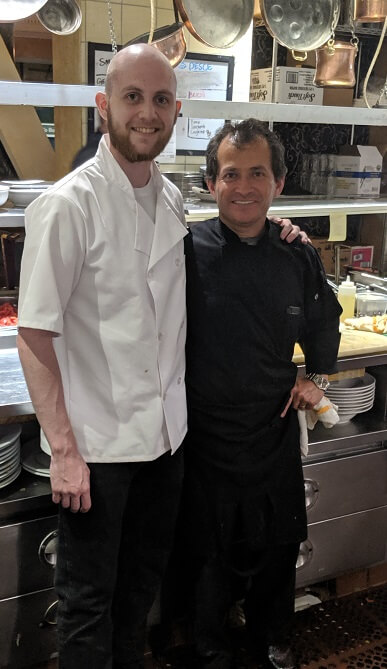
Joey Mendes and CASA mentor Chef Walter Cotta at L’Opera (Long Beach, CA)
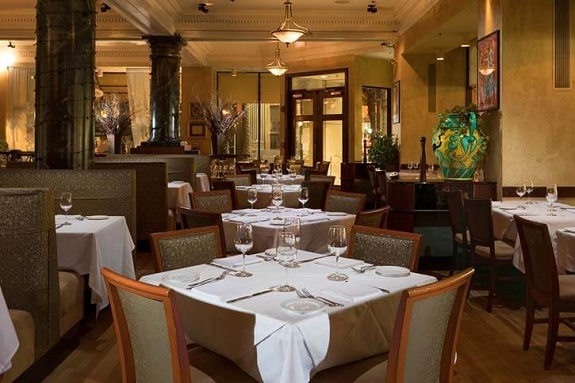
L’Opera Restaurant, a CASA externship location
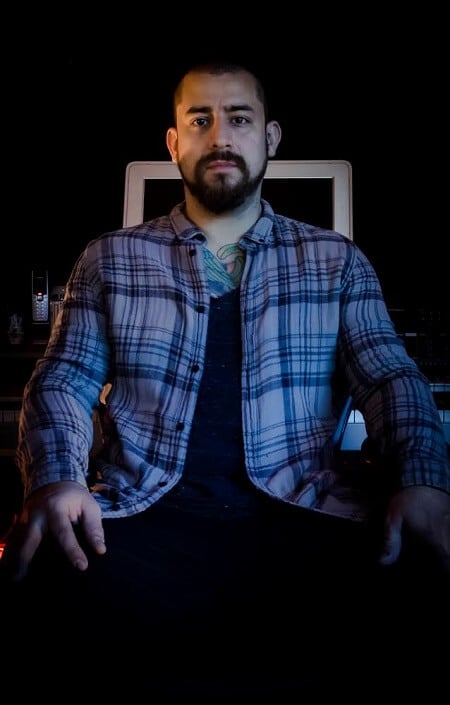
Recording Connection mentor, producer/engineer Josh Monroy, Studio 1 Zero
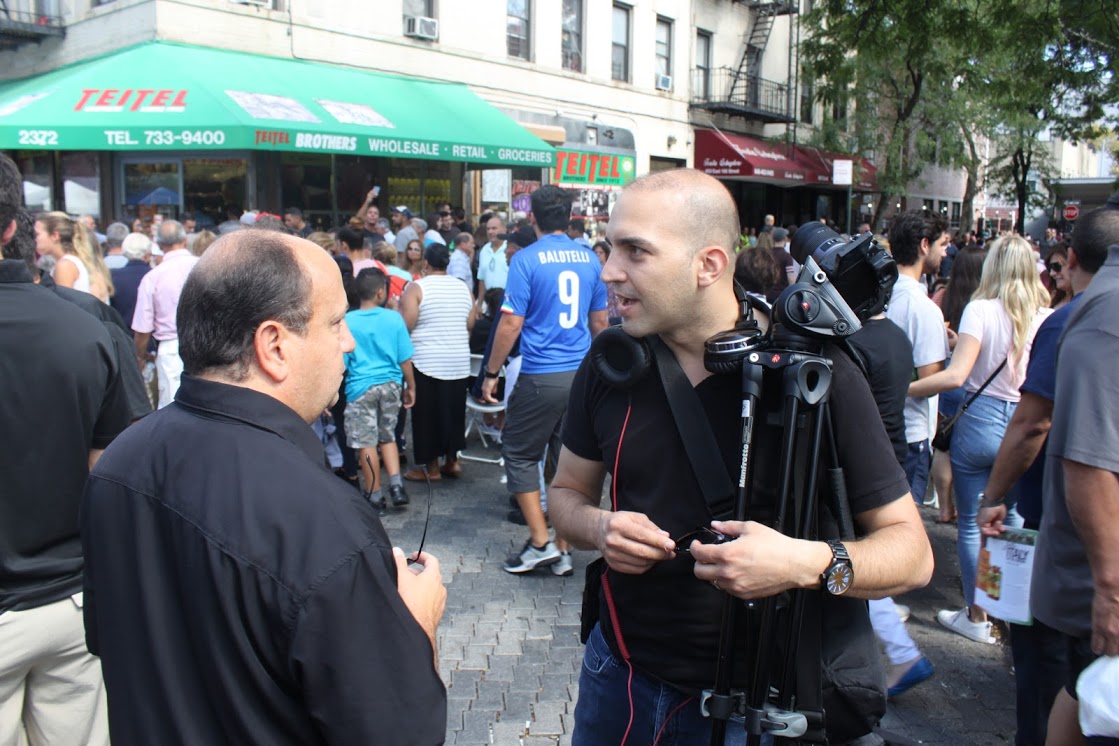
Film Connection mentor Zef Cota with Frank Oliviero of Italians of West Virginia at Ferragosto Festival (Little Italy, The Bronx)
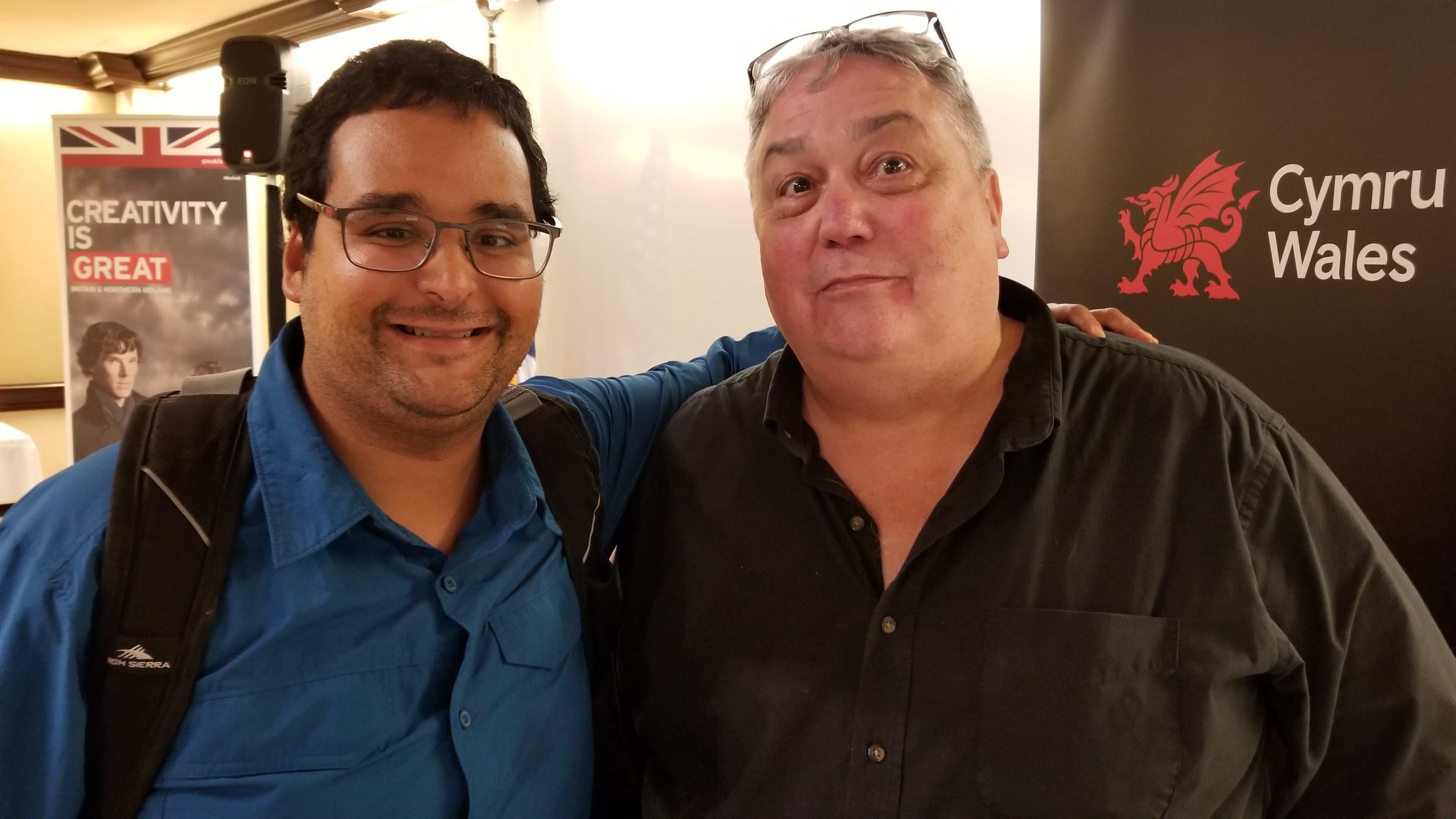
Film Connection student Joffre Valles and Dean Lyon
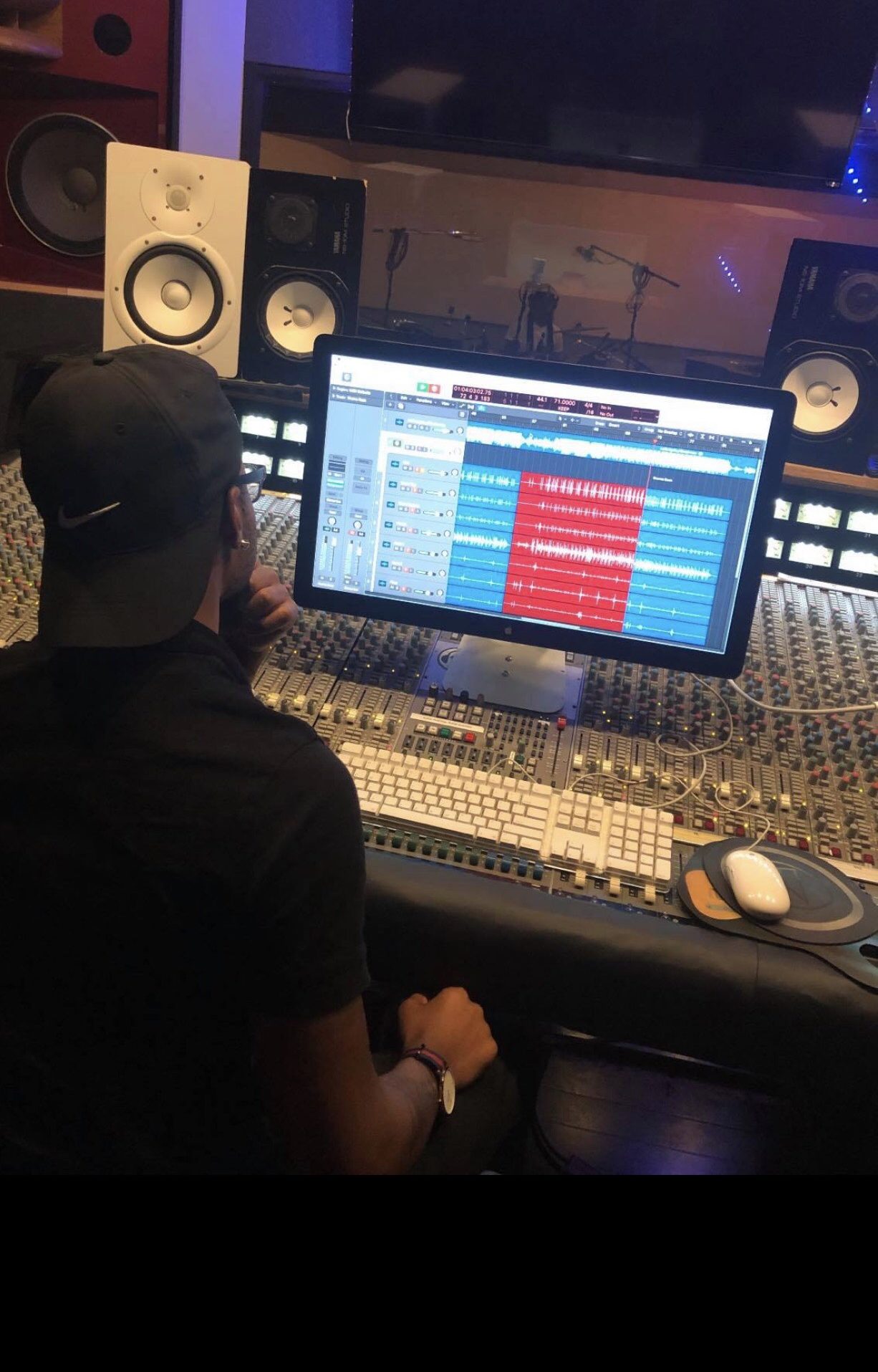
Richard Sedden Jr. recording Boots Greene at Breed Studio

RRFC is education upgraded for the 21st century.
Get the latest career advice, insider production tips, and more!
Please fill out the following information, and RRFC Admissions will contact you to discuss our program offerings:
Stay in the Loop: Subscribe for RRFC news & updates!
© 2024 Recording Radio Film Connection & CASA Schools. All Rights Reserved.


